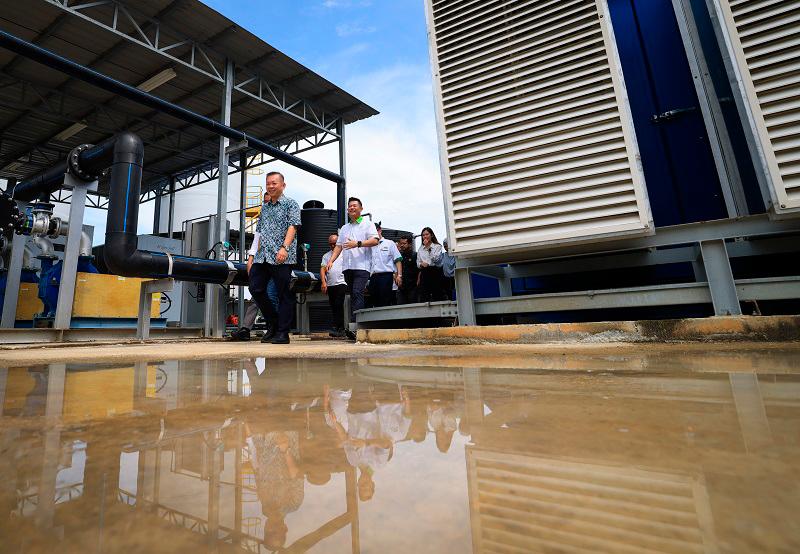MUAR: The Ministry of Plantation and Commodities hopes that more centralised biogas plants can be established by industry players to maximise the use of oil palm waste for generating renewable energy.
Deputy Minister Datuk Chan Foong Hin said that such facilities could be the best method for renewable energy sources in Malaysia, utilising advanced technology to convert raw palm oil mill effluent into clean energy.
“Biogas in energy generation is a transformative agenda bridging agriculture and advancing technology, and in this context, centralised plants are increasingly necessary due to the significant scale of the oil palm industry in Malaysia.
“Therefore, establishing a biogas centre in areas owned by several oil palm plantation owners indirectly leads to more optimal economies of scale and cost savings,“ he told reporters after opening Malaysia’s first centralised biogas plant in Bukit Pasir today.
Specific areas like Pagoh and Muar are seen as highly suitable for having such centralised plants because there are several palm oil mills within a 70-kilometre radius. This makes it more cost-effective for oil palm operators to manage palm oil waste for biogas production.
In addition, Chan said, the centralised plant method is also expected to encourage industry players to be more inclined to invest in renewable energy projects.
He explained that the first project involving cooperation between Text Cycle Technology (M) Bhd, Green Lagoon Technology Sdn Bhd, Sime Darby Plantation, and Hok Huat Group could also pioneer the development of renewable energy technology through oil palm waste in the country.
Meanwhile, the 3.5-megawatt centralised biogas plant has contributed more than 1.6 million kilowatt-hours to the national grid since last April.
The centralised plant not only contributes to reducing carbon emissions but also helps boost the local economy by creating job opportunities and ensuring energy security, Chan added.









